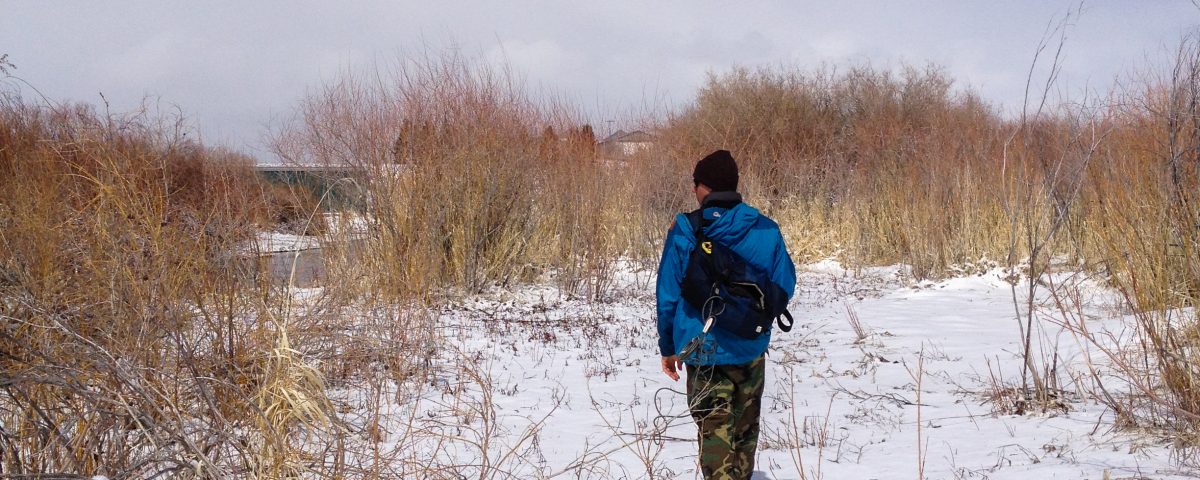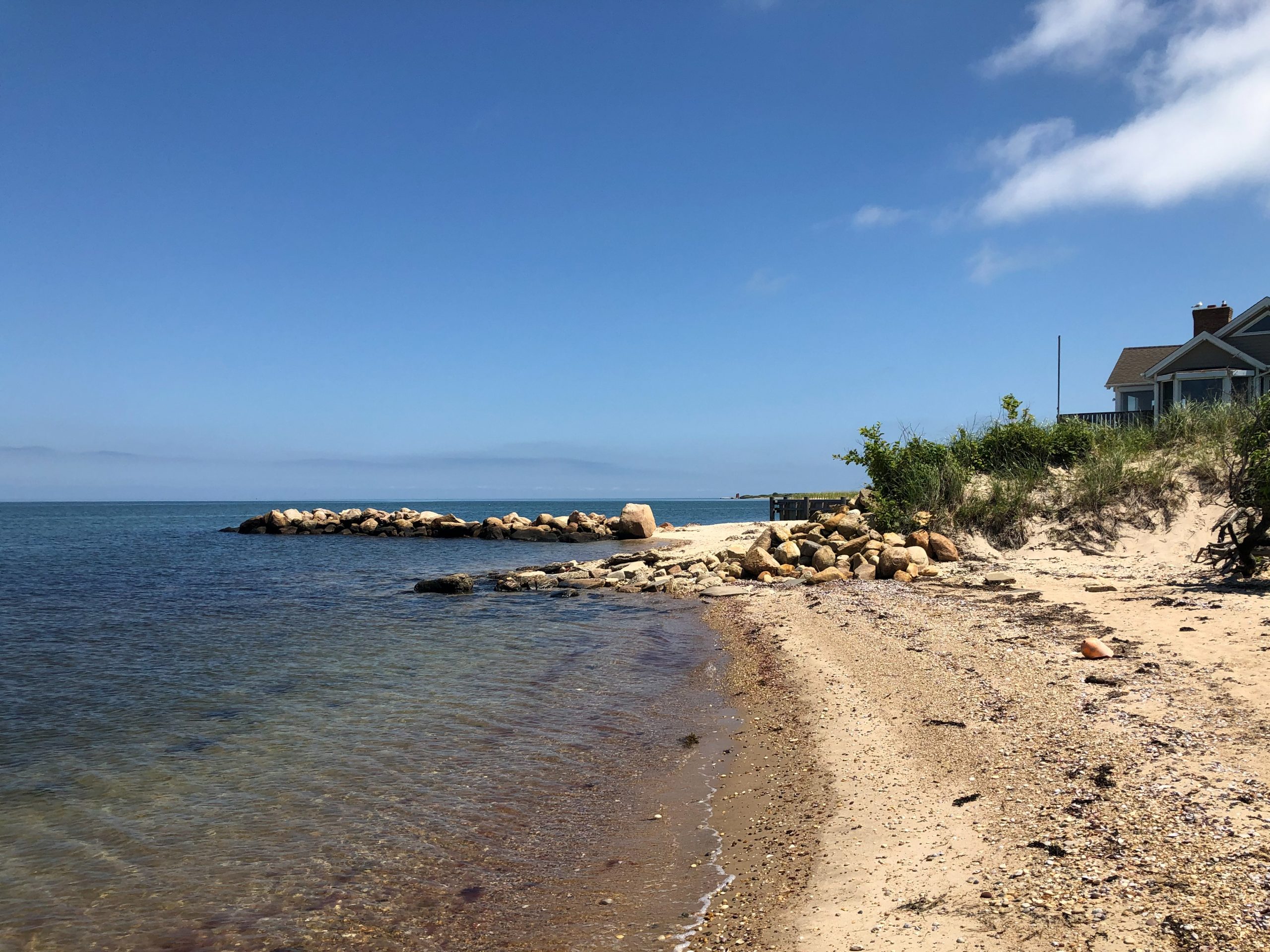
Great Ecology’s “Lazy Point Coastal Erosion Pilot Project” Featured in News Article
January 26, 2021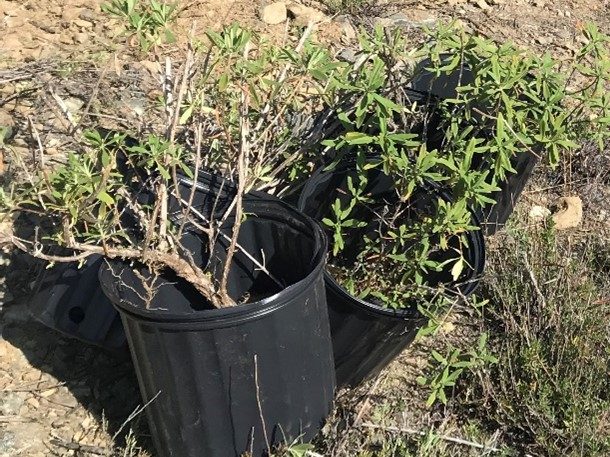
Field Blog: San Diego County Coastal Sage Scrub Plants
February 19, 2021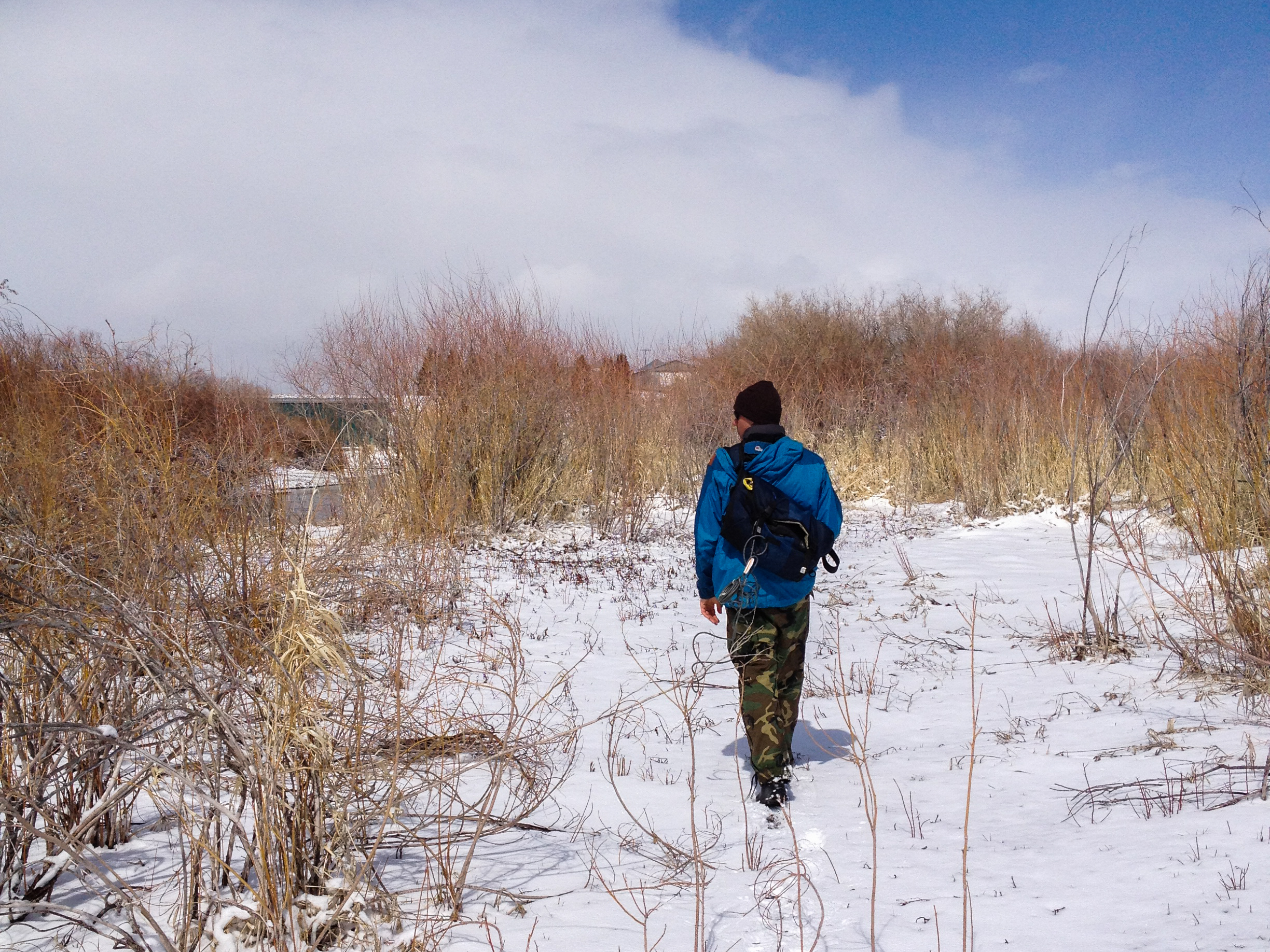
A snowy site visit in Idaho, circa 2013
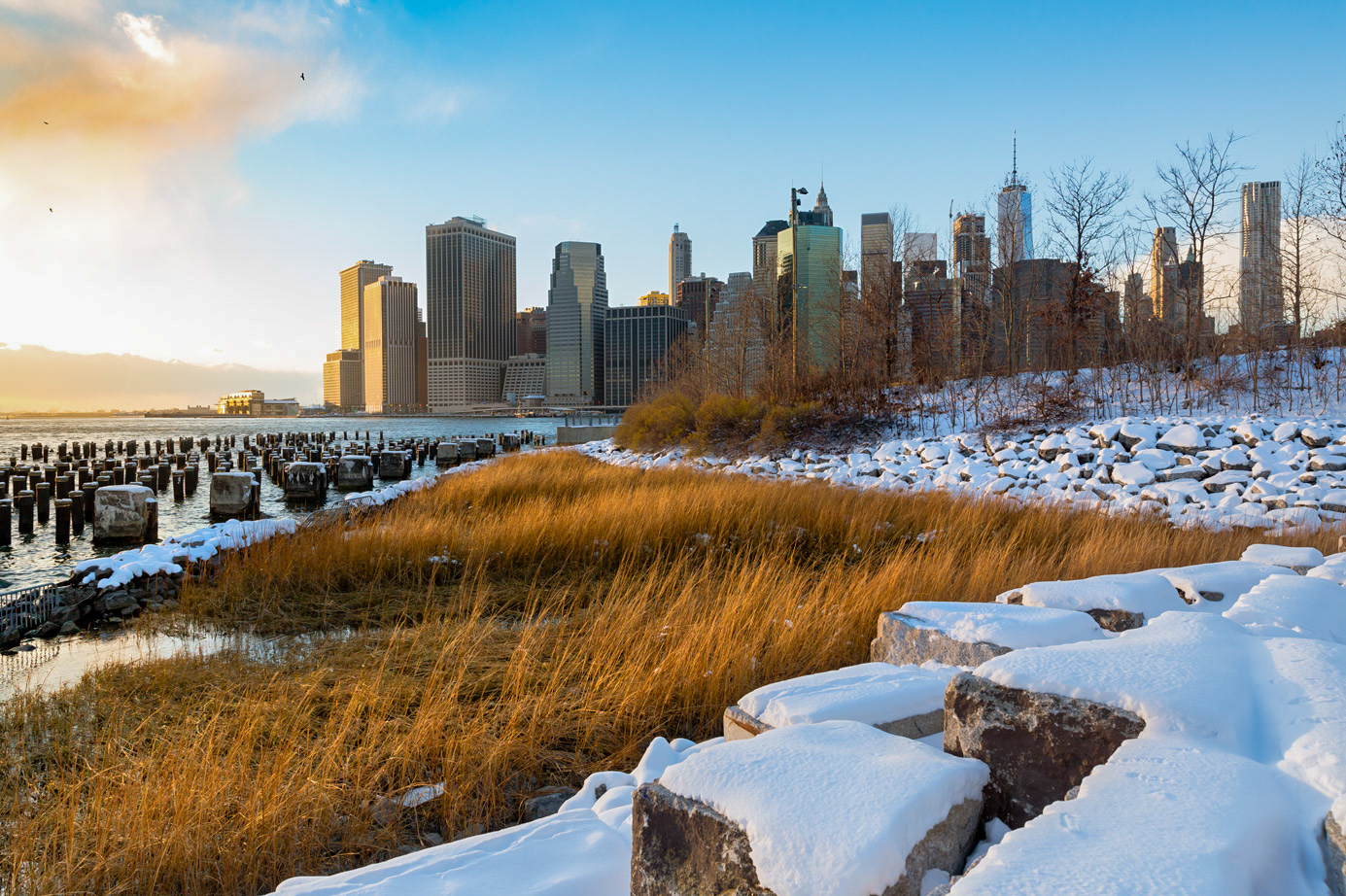
Great Ecology's salt marsh at a snow covered Brooklyn Bridge Park
An Ecologist's Guide to Connecting with Nature: Winter Edition
Author: Liz Clift
For many parts of the country winter brings a desolate landscape filled with bare trees, brown grasses, snow, frozen bodies of water, and more. For most of my life, I’ve lived in these parts of the country and I know a number of people who find that this, in combination with shorter days, and colder weather keeps them from experiencing the joys of being outside and connecting with nature. Fortunately, most of us can create time for this valuable connection—whether gazing through our windows at birds, snow drifts, and melting icicles, or gearing up for a slippery walk around the block - sometimes all we need is a reminder that nature is present. For others, that still won’t feel like enough. Fortunately, there are more ways to connect with the world around us during the winter. Here are just a few ideas:
1) This is a great time to brush up on your identification skills, using either hard copies of field guides or online versions, such as the Cornell Ornithology Lab, the Arbor Day Foundation’s Tree ID Field Guide, and Bug Guide. You can study images, migration patterns, learn how to talk about botanical features of plants, and more—all of which can help with your identification skills as the weather turns warmer and you’re able to spend more time outside. Or, if you want to imagine faraway places, you can use iNaturalist to explore observations (and identifications) from around the world. Improving your identification skills can help you appreciate more of the plants and animals you see, which can help you better connect with and to the world around you—and allows you to actually recognize more of it, including the ways it is changing in response to the seasons or stimuli.
2) But that’s not all. You can also participate in citizen-science projects, from the comfort of your home. Citizen science participation increased dramatically with the start of the pandemic—and there is still so much need to help scientists gather and process data. I personally love and have participated in Penguin Watch, as well as several other projects—but there are tons of options out there to suit your interests. Citizen scientists are making real, tangible differences in advancement of science and our understanding of the world around us. Practicing these skills online may also help you prepare for in-person citizen science opportunities in your community as they become available (and there may be some options currently available where you live, regardless of the season!).
3) In addition, you can take a dive into podcasts focused on the more-than-human world that range from deeply nerdy, with humor (Ologies), to humorous discussions of the best and worst types of trees (Completely Arbortrary), to focused on a specific facet of the natural world, such as fire and fire management (Good Fire), to a generalist podcast focused on a particular topic (In Defense of Plants). And these are just a few of the options available, that I happen to listen to or have listened to. There are podcasts for nearly every interest—and you can probably find one (or several!) that will indulge the things you like to learn about.
4) If you’re a podcast listener, I’m guessing there’s also a reasonable chance that you like audiobooks—and that opens up an entire world of options. You can experience the more-than-human world through short or book length essays, carefully cultivated place-based fiction, poetry, and so much more. While these features are all available in hard copy books as well, it seems like most people I know have been struggling to read as often or with their usual level of voracity during the pandemic (myself included) and audiobooks could offer a nice bridge, especially for people who learn especially well aurally. As an added bonus, you can listen to audiobooks with your children, roommates, partners, parents, or others—either because you’re spending time together or as a way of having a virtual book club.
5) On especially wintery days, you might consider turning to nature documentaries to take you all around the world and help you better understand the world around you—or parts of the world you might personally never encounter. It’s a beautiful way to travel with a fairly minimal carbon footprint (and from the comfort of you couch, which is especially important until the pandemic ends).
Whatever you choose, continuing to engage with the more than human world—including going outside—can help improve mental and physical health.

